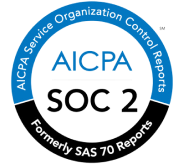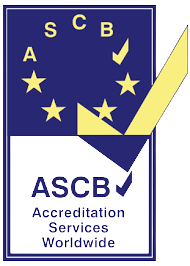Table of Content
Introduction
Remote work is on the rise this year. The return to office trend is getting a lot of competition with various modes of doing work remotely. Plus, the gig economy is also taking a concrete and financially stable shape in the Indian economy. Thus, it is putting pressure on the talent hunters to go beyond their conventional resources to hire the right talent for the current project and get output. This means the hiring of freelancers, contract workers, remote workers/staff, and/or gig workers is also on the rise. This new wave of hiring demands recruiters to acknowledge and master the fundamentals of remote work policy.
When the hiring managers and talent hunters do that, they understand what, why, how, and how many employees to staff over a period. They will also enable remote workers to operate legitimately online without having to micromanage them in the first place.
That means, for such a working style, an HR manager must at least know how to craft a policy and provide better employee experiences with HRMS software. So, if you’re one such HR manager, read the post below and get all insights on the fundamentals of doing remote work right.
Want to skip the post?

What are the fundamentals of remote work policy 2024?
-
Clear Communication Guidelines
Clearly mention in your remote work policy about the communication platform and guidelines to follow. Allow remote workers to communicate on a secure, encrypted, and collaborative platform like our social intranet to keep up with the flow of communication with a shared purpose.
-
Flexible Work Hours
Mention the possible flexible working hours allowed for remote workers in advance. This will remove any discrepancies and confusion to operate in flexible work schedules. Mention what type of work deliverables will be expected out of the workers or employees when they are operating through flexible work hours to remain disciplined.
That means total clocked-in or billable hours should be averaged out to be 8-10 hours per day, the usage average of the Indian firms. However, the exact hours must be mentioned under the flexible work hours facility provided to the remote employees.
These employees must be provided with the HRMS software like hours where they can punch in and punch out daily to record their attendance and billable hours. This procedure avoids further misconduct from either of the parties.
-
Data Security Measures
Ensure that the data security measures take place from both parties’ ends. Mention clearly how safe, secure, and encrypted data is on the HRM software that the remote employee will be using for carrying out daily administrative and employee data management transactions.
For example, the software to be used must be GDPR and DPDPA-compliant. Simultaneously, it must be SOC2 and ISO certified. That way, employees can securely log into their credentials even from remote locations. They will have no fear of their data getting stolen or misused.
Also, this section of the policy must mention the ways to backup the data when there is a server issue from the backend. Remote employees must have the right and updated contact information to resolve their data management and security issues when using the HR management system.
Similarly, the HR administrative department can white list and black list certain websites as per this policy. Remote employees will have to comply with these rules and policies as a moral responsibility to avoid getting their important, sensitive, and relevant employee data stolen.
-
Remote Equipment Policies
Mention the type of equipment that the remote employee must have, and that must be readily available to use. This can include stable and reliable net connection, mobile devices, and phones for seamless and unbreakable connectivity and availability.
Then, the company can provide the employee with HR software to execute their daily leave, attendance, and other transactions online to keep track of their performance, punctuality, and engagement levels.
Similarly, they might also have earphones connected to the device to take the scrum calls on time and have the reports readily to discuss the progress of the team with seniors.
However, it depends on the company. Some organisations might have different equipment requirements, like having a laptop or desktop with certain RAM and operating system.
All such and other relevant information must be mentioned in this section and acknowledged by the new hire beforehand.
-
Performance Expectations
Lay out the performance expectations to the remote staff beforehand. Discuss this on the interview calls before finalising them. Get that on paper to have the written document and contract ready.
There might be generic performance expectations from remote employees like:
- Availability during business hours.
- Stable net speed and connectivity.
- Timely updates on the performance and tasks performed.
- Not taking the absence of leave beyond a certain number of days.
- Keeping the reporting manager informed about the ad hoc tasks and activities.
Such expectations are common from remote employees. However, a remote employee must also acknowledge and digitally sign the same when they are offered the contract to conform to the company policies and avoid further conflicts.
-
Health and Well-being Support
Mention what kind of mental and emotional well-being support you can provide to your remote staff. That means establishing and implementing a Happiness Meter into the virtual biometric system.
This helps employees to capture their mood of the hour whenever they punch in or out of the system. This dataset is collected at the backend of the people analytics enabled in the HRMS we offer.
Reporting and HR managers know which employee is underutilised, overworked, burned out, the happiest, most productive, etc., because of these daily emotional punch-ins.
So, this is a creative and intelligent initiative by smart companies in India to capture their employee’s sentiments and provide them with the right mental and emotional support at the right time.
-
Collaborative Tools and Training
Mention the collaborative tools and training sessions you would like the remote staff to leverage for effective workflows during their tenure at the firm. Interactive platforms like our intranet help remote employees to connect online with a common purpose in mind.
Training sessions are also easily accessible to the remote staff when trainers upload content in the content library of the eLMS function. The same module or functionality is easily integrated into the intranet.
So, remote employees can optimally leverage both modules at once if the organisations mention these in the remote work policy this year.
Plus, such staff members wouldn’t be switching between tabs or applications. It saves their time and improves coordination and communication on the move.
-
Cybersecurity Best Practices
Write down all relevant cybersecurity practices that the company follows, from security checks and vulnerability checks to establishing network security at all times. This section helps to reassure a remote employee that their online sensitive and sentimental data is secure within the firm.
Also, get consent from the employee to safely keep the data, whether it is about their contact details, skills, education, experience, etc. Such data must be readily available to the senior HR officials and managers in the firm, along with the reporting manager of the employee.
This must be mentioned as one of the fundamentals of remote work policy in 2024. This brings more transparency about the workplace culture and cybersecurity features. That way remote workers can trust the organisation and their best practices to process employee data at scale.
-
Inclusivity and Diversity Policies
Organisations must develop DEI policies even for their remote staff. These people must be treated with fairness and equal job and learning opportunities as the in-office staff members until and unless stated otherwise.
Remote employees must be allowed to access the DEI policies on the portal at any time to review and refresh their knowledge on the same. They must digitally sign these documents as a way of showing their acknowledgment and must be allowed to download such policies whenever needed.
-
Regular Policy Reviews
HR managers must constantly review, update, and renew their remote work policies in 2024 and beyond. Each year, there is a new trend in the way we work. Employees are also becoming educated about the way they want to contribute to the firm.
Each year, the culture must not be the same. It has to constantly evolve for the betterment of all.
Therefore, it is necessary and important for the HR managers and policymakers within the firm to keep track of the policies, updating these with the state and city boards to stay compliant and protect the firm from getting fined by government authorities for not updating workplace policies like this one.
Conclusion
Crafting the fundamentals of remote work policy in 2024 demands a thoughtful approach that considers the evolving nature of work. By following these guidelines discussed in the post above, you can create a policy that not only meets legal standards but also fosters a thriving remote work culture.
FAQs on Fundamentals of Remote Work Policy 2024
How do I ensure my remote policy complies with legal standards?
Crafting a policy that complies with legal standards involves thorough research and consultation with legal experts. Ensure your policy covers all necessary aspects to remain legally sound.
What tools can enhance communication in a remote work environment?
Utilise a combination of communication tools such as video conferencing, project management, and instant messaging to foster effective communication among remote teams.
How can I balance flexibility without compromising productivity?
Balancing flexibility requires setting clear expectations and providing guidelines. Incorporate performance metrics and regular check-ins to maintain productivity standards.
What steps can I take to ensure inclusivity in a remote work policy?
Promote inclusivity by fostering an open and collaborative culture. Implement policies that accommodate diverse needs and provide resources for all team members to thrive.
How often should I update my remote work policy?
Regular updates are crucial to adapt to changing circumstances. Review your policy at least annually or whenever there's a significant shift in your organisation or industry.
Are there any tax implications for remote workers?
Tax implications vary by location. It's advisable to consult with tax professionals to ensure both the organisation and employees comply with relevant tax regulations.












